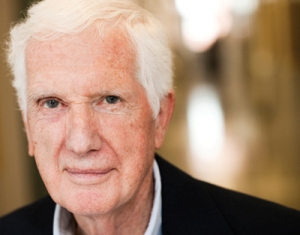
Dr. Charles Scriver’s, career has spanned over 50 years. From incredible medical breakthroughs to pioneering research initiatives, an important part of his every-day remained his exchange with people.
McGill’s award-winning Headway magazine recently featured a behind the scenes look at this eminent member of the Faculty of Medicine, Alva Professor Emeritus of Human Genetics, and Professor Emeritus of Pediatrics.
He loved his undergraduate human biology course with professor Norman Berrill, and he grew up with “two very good role models” who always kept people at the forefront of their medical practices: “Who do we serve? How do we serve? And why do we serve?”
Medicine as an extended course in human biology? Could be interesting. So Scriver applied to medical school. But, unlike most aspiring doctors, he didn’t hedge his bets with multiple applications. He took one shot; if it didn’t pan out, he’d do something else. In the fall of 1951, he started med school at McGill. More in Headway ►

Dr. Charles Scriver’s, career has spanned over 50 years. From incredible medical breakthroughs to pioneering research initiatives, an important part of his every-day remained his exchange with people.
McGill’s award-winning Headway magazine recently featured a behind the scenes look at this eminent member of the Faculty of Medicine, Alva Professor Emeritus of Human Genetics, and Professor Emeritus of Pediatrics.
He loved his undergraduate human biology course with professor Norman Berrill, and he grew up with “two very good role models” who always kept people at the forefront of their medical practices: “Who do we serve? How do we serve? And why do we serve?”
Medicine as an extended course in human biology? Could be interesting. So Scriver applied to medical school. But, unlike most aspiring doctors, he didn’t hedge his bets with multiple applications. He took one shot; if it didn’t pan out, he’d do something else. In the fall of 1951, he started med school at McGill.
More in Headway ►